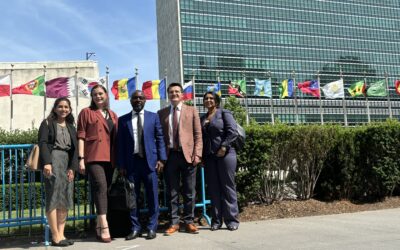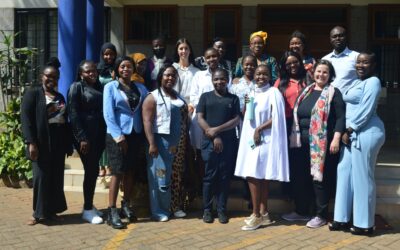For more than 100 years, International Women’s Day has put a spotlight onto issues affecting women around the world. Today, International Women’s Day belongs to everyone who believes that women’s rights are human rights. We Asked some of Free the Slaves’ leading advocates to reflect on the status of women.
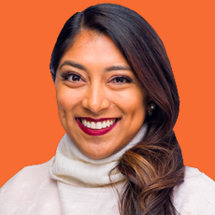
Davina Durgana is a member of the Free the Slaves board of directors and an award-winning international human rights statistician with more than a decade of experience developing leading global models assessing risk and vulnerability to modern slavery.
What does International Women’s Day mean to you?
International Women’s Day represents a beautiful moment of solidarity for everyone to celebrate the achievements of women in our lives and to recommit ourselves to jointly fighting injustice and inequality in every aspect of our lives.
What has been your experience advocating for freedom and gender equality?
As a woman, fighting for freedom and gender equality has been both personal and professional to me. One of the most inspirational women in my life is my Nani, my maternal grandmother. She had my mother at a young age and never finished high school in Guyana, South America. As a result, she is a lifelong advocate for ensuring every educational opportunity is pursued and every chance to uphold other women is taken. She is a reminder that the world can be drastically different for women across even one generation and it makes me so excited for the world we are fighting to create for our own children.
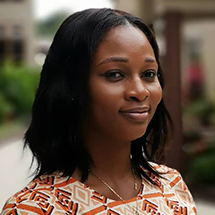
Sonia Adu-Gyamfi is the Free the Slaves monitoring, learning and evaluation associate, based in Ghana. Sonia is passionate to see young girls succeed and become strong pillars of hope in society, and she mentors young girls in her community to help them make right choices in life, and assists and encourages them to excel academically.
What does International Women’s Day mean to you as a member of the Free the Slaves staff?
Working as a woman in a multicultural and gender diverse nongovernmental organization like Free the Slaves has been such a great honor. My ability to effectively work and contribute to the growth and progress of Free the Slaves is worth noting. Hence, this day helps me know and reflect on the impact we are making to end modern slavery.
What does it mean to be a woman in your culture and country today?
Women’s role and status in Ghanaian society has seen some changes in the -past few decades. Our role and participation in the Ghanaian economy merely along biological and cultural lines have significantly shifted. Women are breaking the status quo and venturing into areas that were considered as the forte of men. Many women are increasingly becoming the breadwinners in their homes.
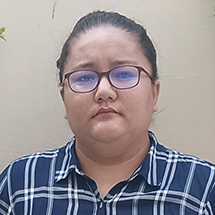
Tsering Diskit is our India progam officer, supporting partner organizations by building their capacity to implement anti-slavery programs. She has also managed the India program’s finance and monitoring, learning and evaluation efforts.
What does International Women’s Day mean to you as a member of Free the Slaves staff?
Working on the Free the Slaves staff helps me redefine the meaning of freedom and equality. I can look into the lives of victims of different forms of discrimination and slavery. I have been able to meet the strongest of the strong women who have evolved in a patriarchal and feudal society. Women’s Day for me is a day to appreciate the efforts of all the strong, independent women to make this world better.
What has been your experience working with women survivors of modern slavery in India?
Each woman I have met has a unique story to share. Their goals are similar, as they all want a life of freedom, equality and respect — but their struggles are different. Some of the women stand up against the patriarchal mentality of society; some women struggle to get equality and their basic rights as a human being. All the women I have met have inspired and motivated me to believe that women are capable of making the world a better place for humankind.
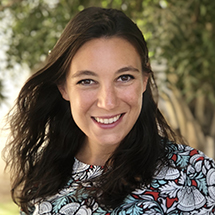
Nour Sibaai is the Middle East and North Africa (MENA) regional manager at Free the Slaves. Her role is to represent Free the Slaves in MENA, implement and design projects in the region, explore new partners, and manage regional programs and partners.
What does International Women’s Day mean to you as a member of Free the Slaves staff?
As a member of Free the Slaves, I can drive the female agenda and fight for women’s rights. I am happy to be part of an organization where I can work to empower women in underprivileged societies who are usually discouraged to speak up or have their own opinion. By using this platform, we would be able to highlight their situations and create more awareness. We have the capacity to empower others and free them from their current situations.
What does it mean to be a woman in your culture and country today?
A woman in Arab culture continues to face certain biases and stereotypes. I am proud to be one of the women shattering those misconceptions. We have a rich history of strong women and I believe we’re heading into a more female centric environment. The future seems brighter for younger generations but we still have plenty of work to do to continue to progress where women need to become more entitled and independent.
This day is a reminder to everyone worldwide that women play important roles in all parts of society, from education and politics to research and business. Today is a time to reflect on women, past and present, who have made an impact on others and on society. Women are the backbone of the modern anti-slavery movement.
You can support their work in our field programs around the world by visiting freetheslaves.net/donate.


